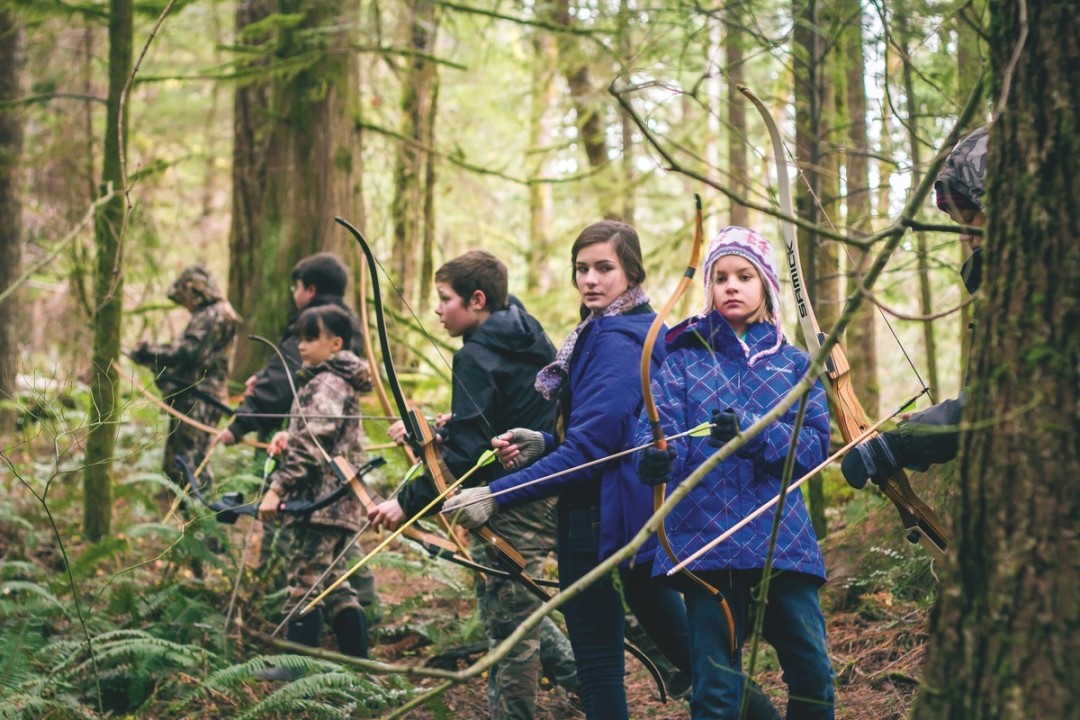Academic Success, Hunger Games-Style?

Image: Ashley Anderson
One school-day morning, a 7-year-old girl with black rain boots, a quiver of arrows, and a bow in hand stands in a line with three other children. Josh Hood-Marvin, their instructor, watches as each child notches an arrow and fires at targets made of hay. Another group throws metal ninja stars. Meanwhile, at six anvils surrounding three furnaces, Daniel “Otis” Brophy teaches a group aged 10 to 14 to hammer metal: “It’s like throwing axes,” Brophy says. “You guys have thrown the axes before, right?” The kids nod enthusiastically. Brophy pounds his hammer on a red-hot piece of metal, showing them how to make small hooks. “Hot metal!” each kid yells while pulling a soon-to-be-hook out of the furnace and walking toward an anvil. “Hot metal!”
Almost four years ago, Allison Bagg and her husband decided Trackers Earth might suit their 11-year-old son. Trackers is well known among Portland parents and kids for its camps and classes dedicated to a robust branch of learning. (One summer camp, for example, has a “Stealth, Archery, and Wilderness Survival” theme.) The Baggs looked further into the decade-old outfit’s world, enrolling their son in the specialized programs Trackers has developed for homeschooled kids. “He absolutely loved it,” says Bagg, who homeschools her son in math, reading, and writing. “Trackers fits him.”
The local homeschooling scene is, of course, big and diverse—in 2012–13, about 2,300 Multnomah County kids registered as homeschoolers. There may be almost as many philosophies at work. Trackers’ homeschool courses serve about 270 anvil-hammering students per year with weekly adventures in the woods. Some participating families embrace the “unschooling” philosophy’s focus on student-chosen activities; Tony Deis, Trackers’ founder, grew up that way himself. “Unschool allows kids to delve deeply into what they’re passionate about,” Deis says.
Bagg says Trackers has improved her son’s academic endeavors overall. “He does better writing assignments and is more interested,” she says. “If he’s been out in the woods, he’s more focused, and works harder, too.”
But what are these young rangers learning, exactly? “The focus is outdoor safety,” Deis explains. “Basic survival skills: fire, shelter, food, water, and how to work together in teams. The natural world forces us to be adaptive to the environment around us—vital problem solving that we don’t often get in academics.”




